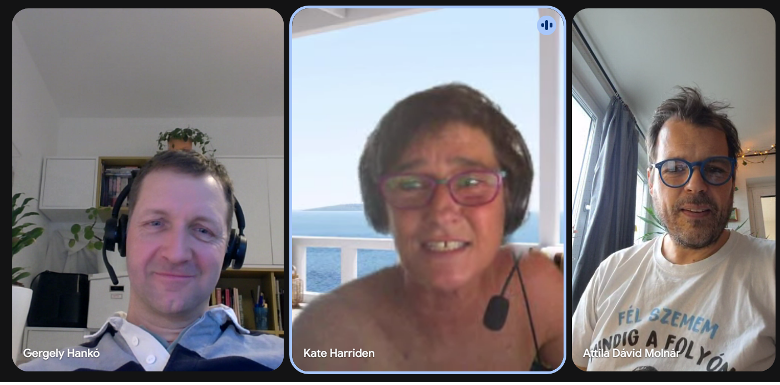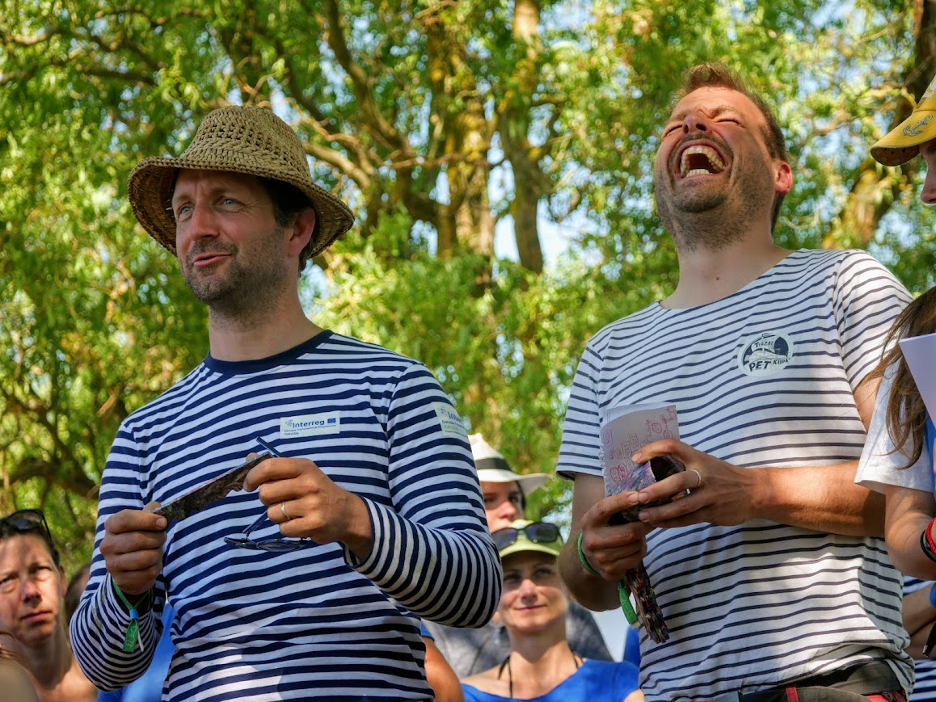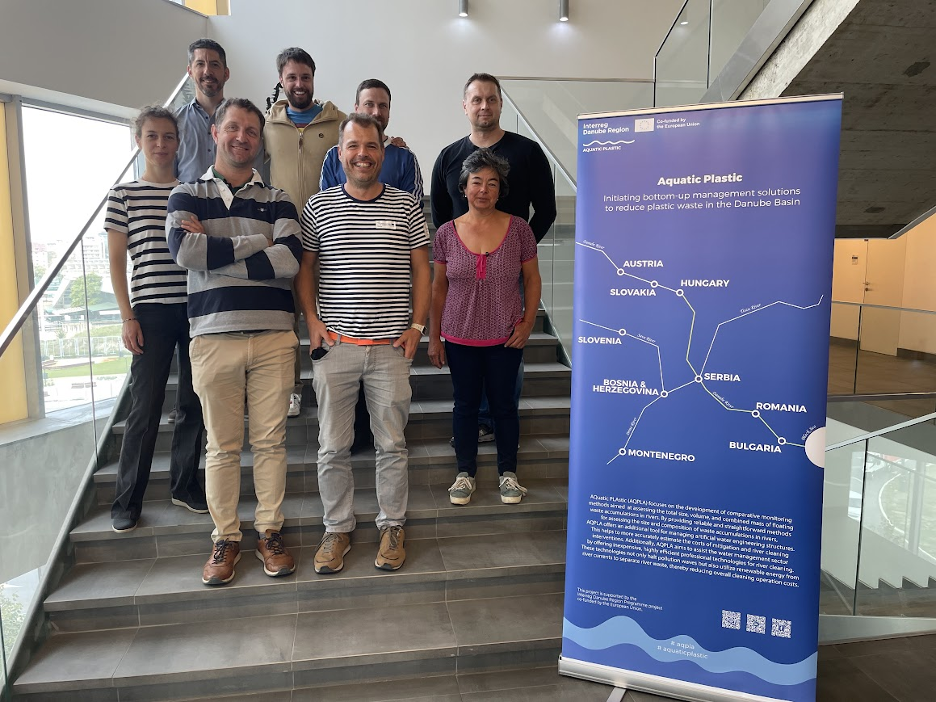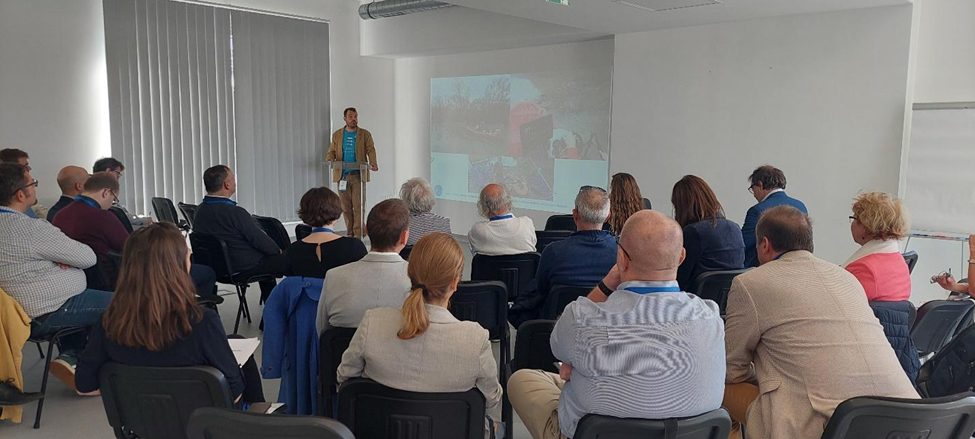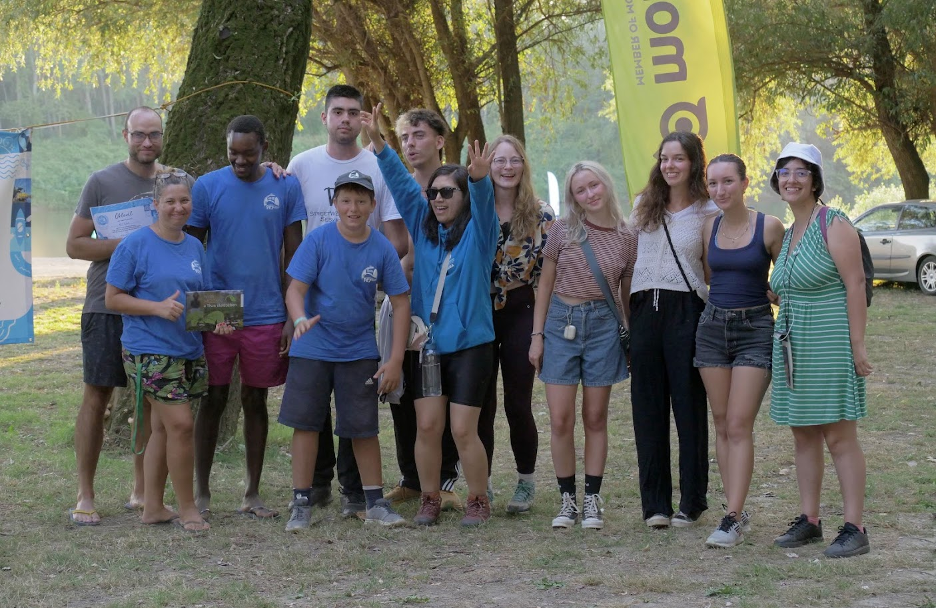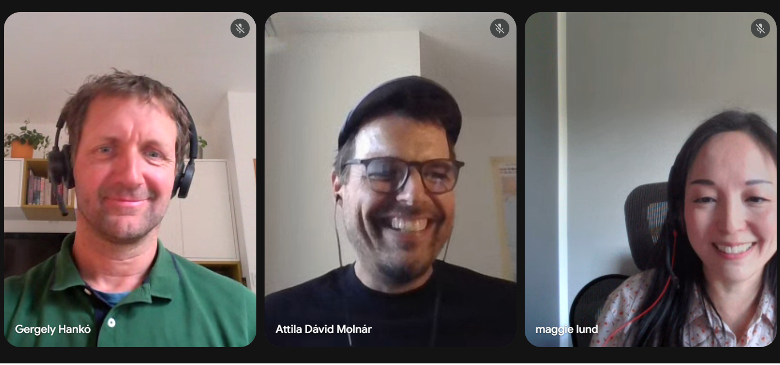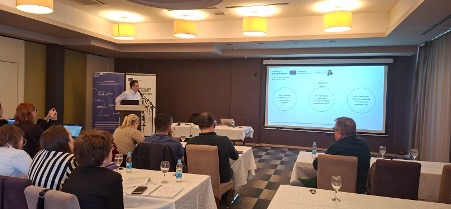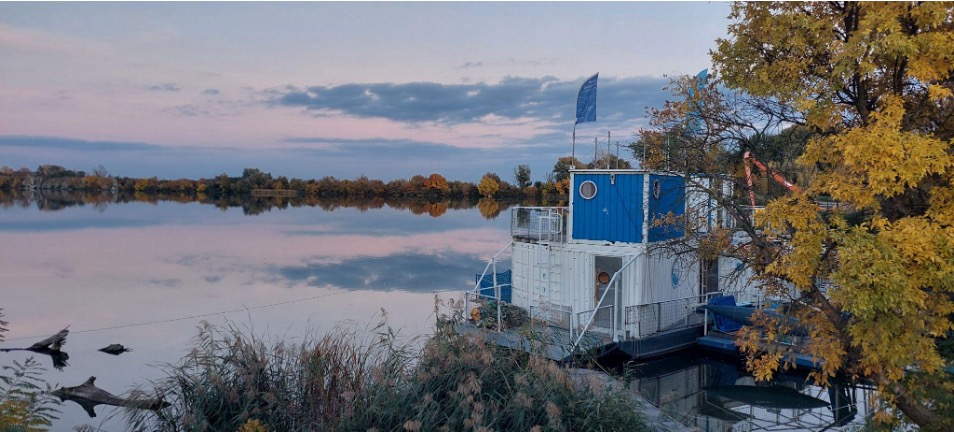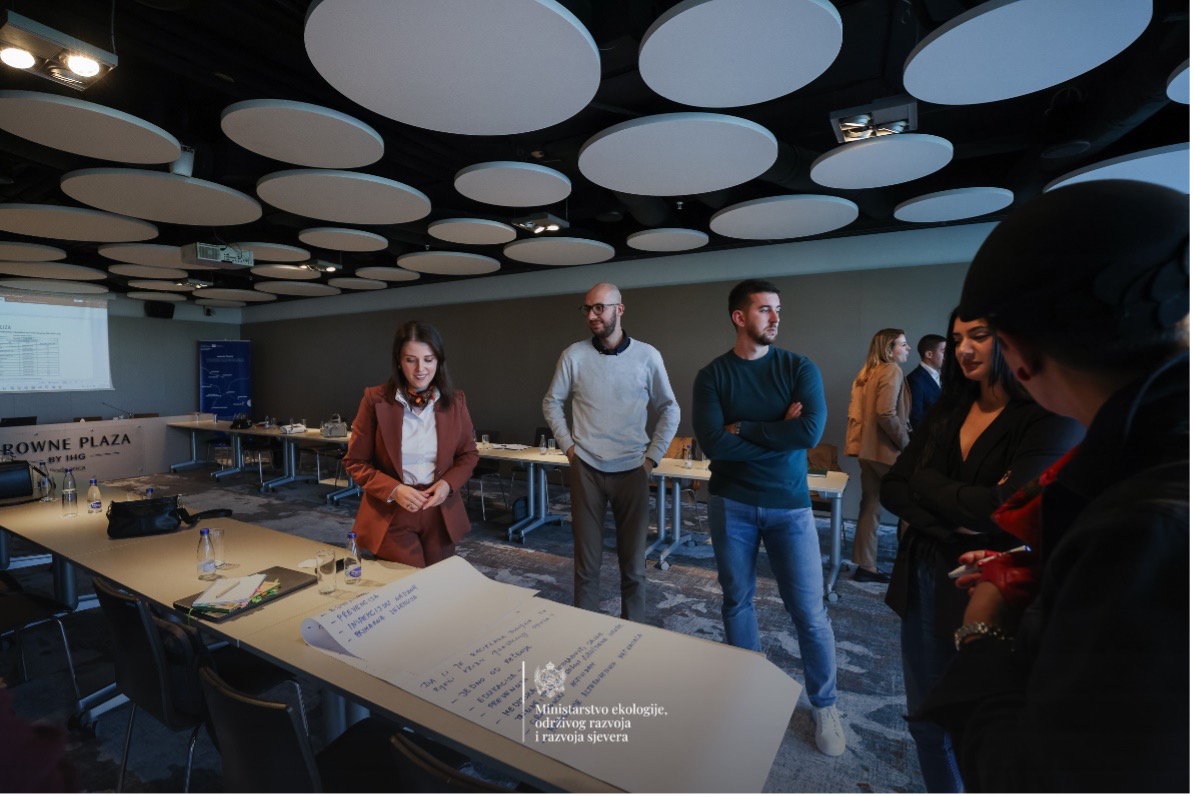
Workshop on “Microplastics in Aquatic Ecosystems”
The Ministry of Ecology, Sustainable Development and Northern Region Development, as a partner in the Interreg Danube Transnational Programme project “AQUATIC PLASTIC (AQPLA)”, organized a national workshop titled “Microplastics in Aquatic Ecosystems”.
The workshop brought together representatives from:
Ministry of Ecology (Department for Waste Management, Department for pollution control and chemical management, and Department for nature protection, PR Service)
Center for Ecotoxicological Research
Water Administration
Ministry of Agriculture, Forestry and Water Management
Agency for Environmental Protection
Geological Institute of Montenegro
Municipalities of Pljevlja and Bijelo Polje
NGOs and the civil sector including Zero Waste Montenegro
Fishing Club “Lipljen” from Pljevlja, which also expressed interest in future project actions.
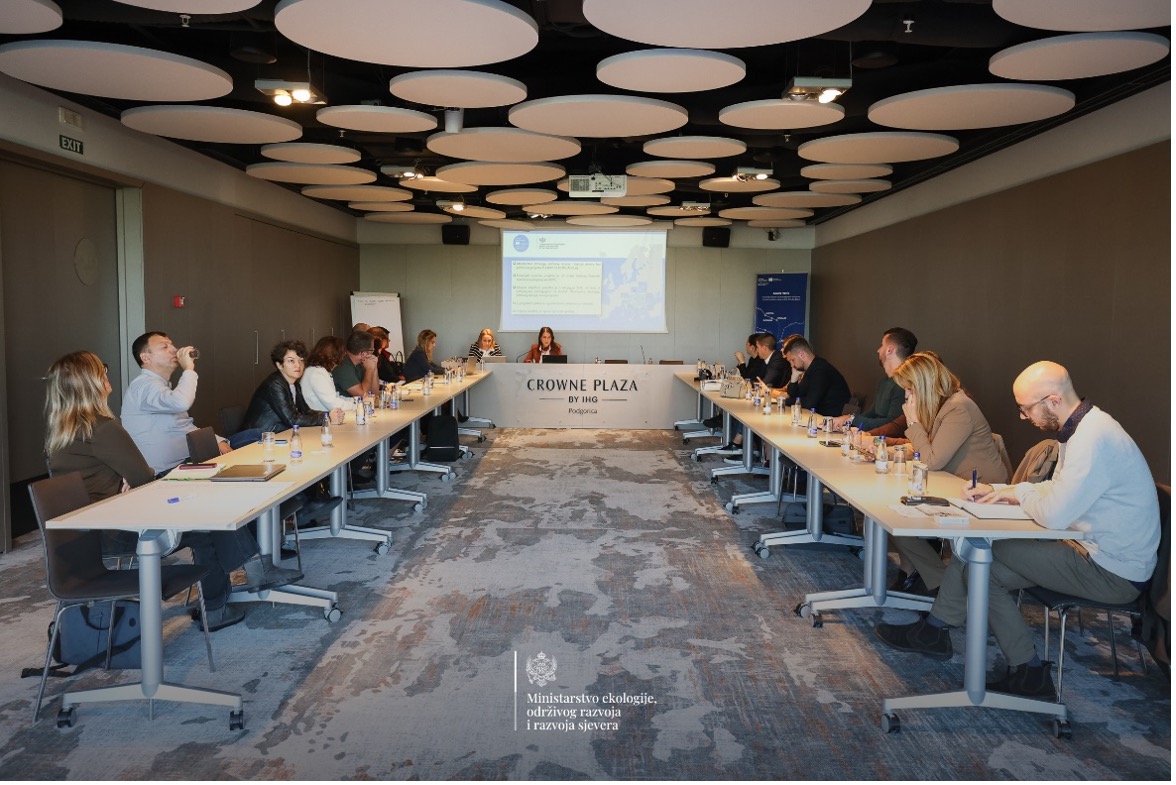
A special part of the workshop was dedicated to the interactive method “World Café”, designed to stimulate dialogue and collaboration in smaller groups. This approach encouraged all participants to engage actively, exchange experiences, and propose practical ideas on how circular economy principles could contribute to reducing plastic waste.
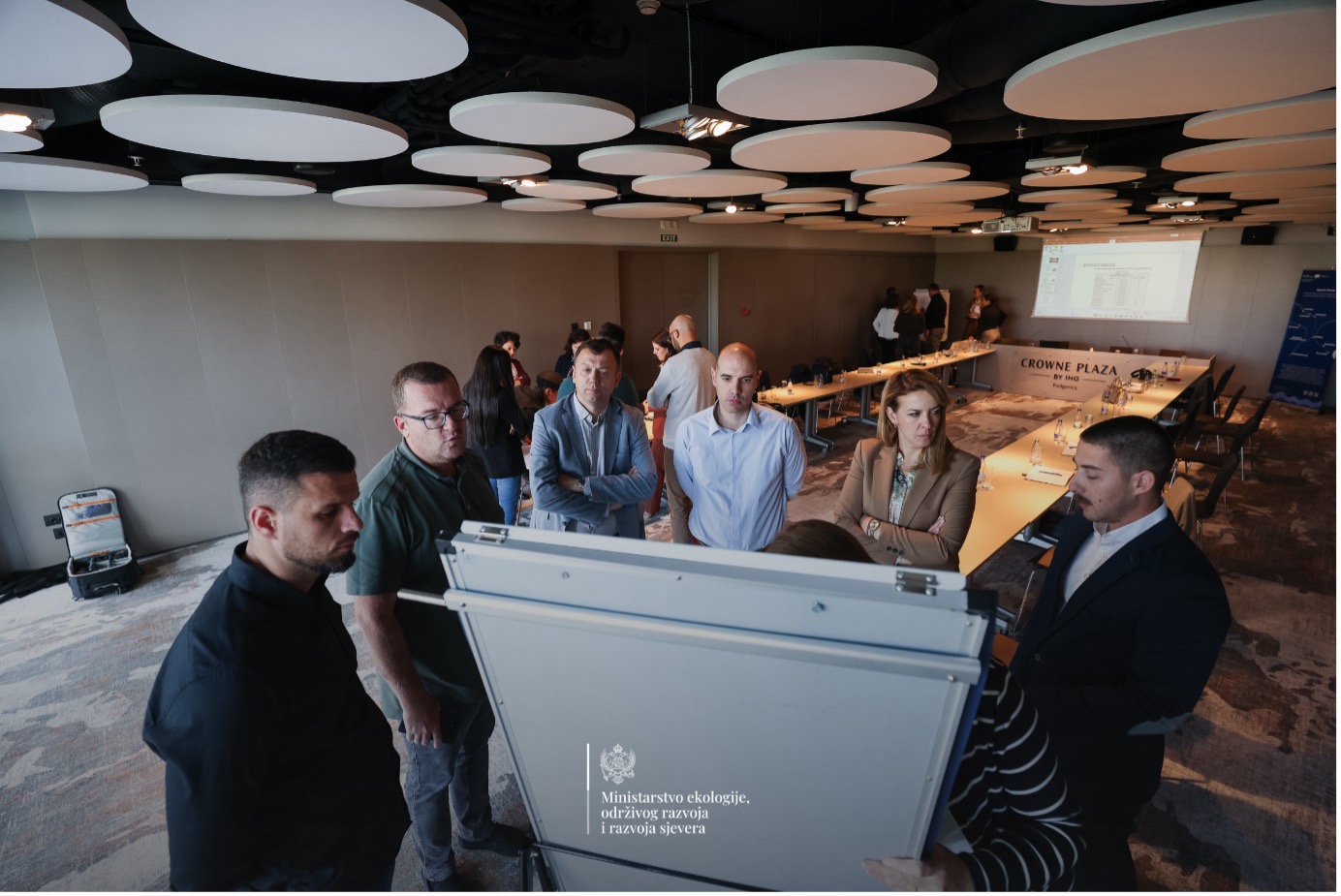
Participants identified multiple sources of microplastic pollution, including single-use packaging, construction debris, polystyrene and insulation materials, textiles, automotive and tourism activities, electronic waste, as well as microplastics originating from cosmetics and tire wear. Key challenges discussed include low public awareness, insufficient infrastructure, limited recycling capacity, financial constraints, and a lack of strong political commitment.
They also highlighted the need to introduce incentive-based systems (such as deposit schemes, rewards, and subsidies), increase media presence, and organize regular clean-up campaigns.
Participants emphasized that recycling alone is not sufficient; efforts must focus on prevention, education, and active public engagement.
During the workshop, the project framework was presented, emphasizing cooperation with HPP Piva and HPP Perućica on establishing a database for plastic waste accumulation and monitoring points.
The “Message in a Bottle” campaign, involving elementary schools and NGOs, was presented as a key awareness-raising activity to promote responsible waste management among youth.
The workshop was designed to:
Raise awareness about microplastic pollution in freshwater ecosystems.
Present current national and regional policies and legal frameworks in waste management.
Share ongoing activities under the AQPLA project, including data collection, pilot actions, and educational campaigns.
Encourage collaboration among governmental bodies, research institutions, municipalities, NGOs, and the private sector.
Collect inputs for upcoming pilot actions, including river clean-up events and school-based awareness campaigns.
The workshop successfully achieved its objectives by enhancing understanding of microplastic pollution and related EU legislation, strengthening institutional cooperation across sectors, and providing valuable input for upcoming pilot actions and outreach activities under the AQPLA initiative. It further reinforced the importance of public education, industry responsibility, and a coordinated national response to plastic pollution.
The event demonstrated strong stakeholder commitment and established a solid foundation for continued collaboration within the Danube River Basin community.
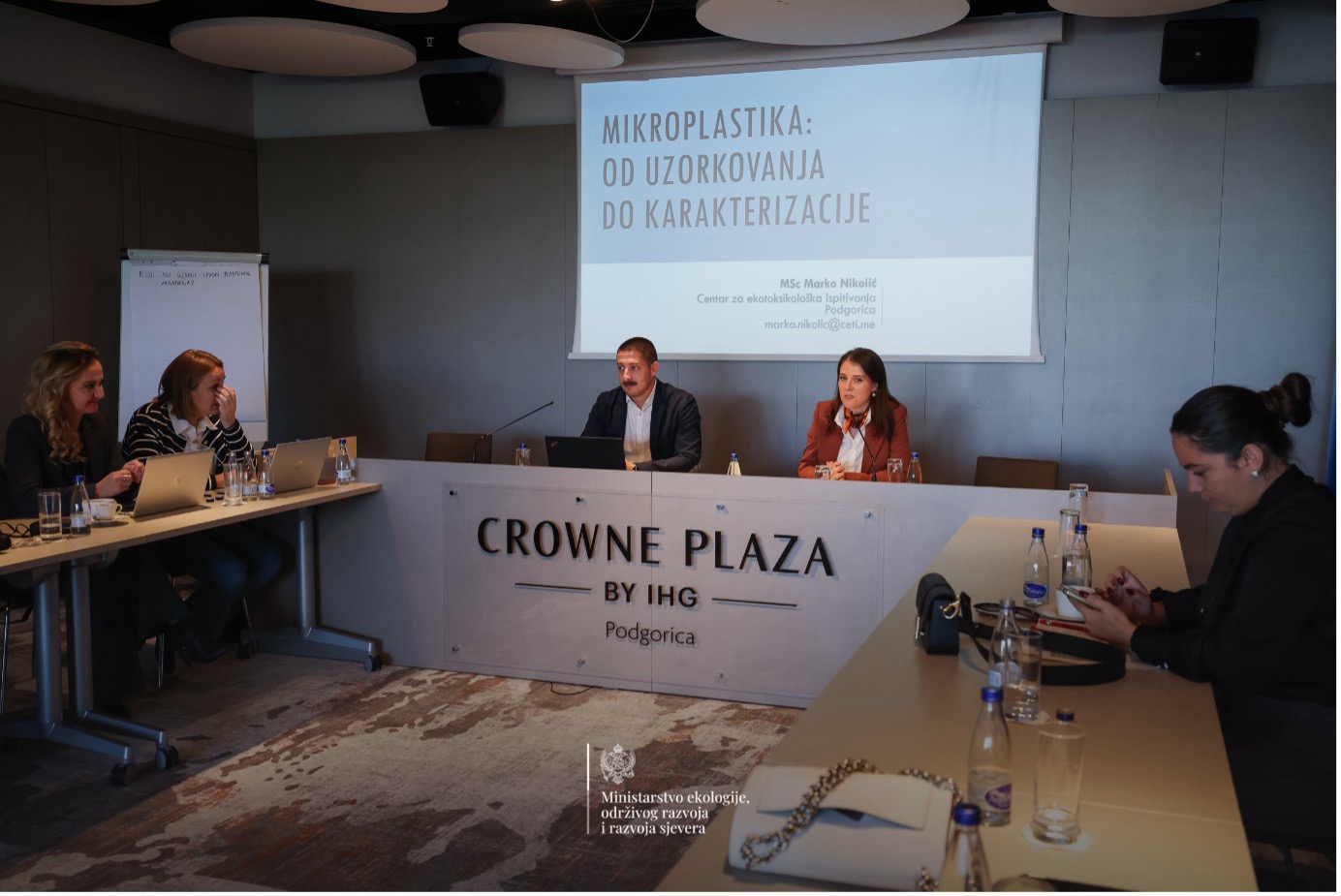
News & Events
Read the most recent updates and explore the upcoming events.

